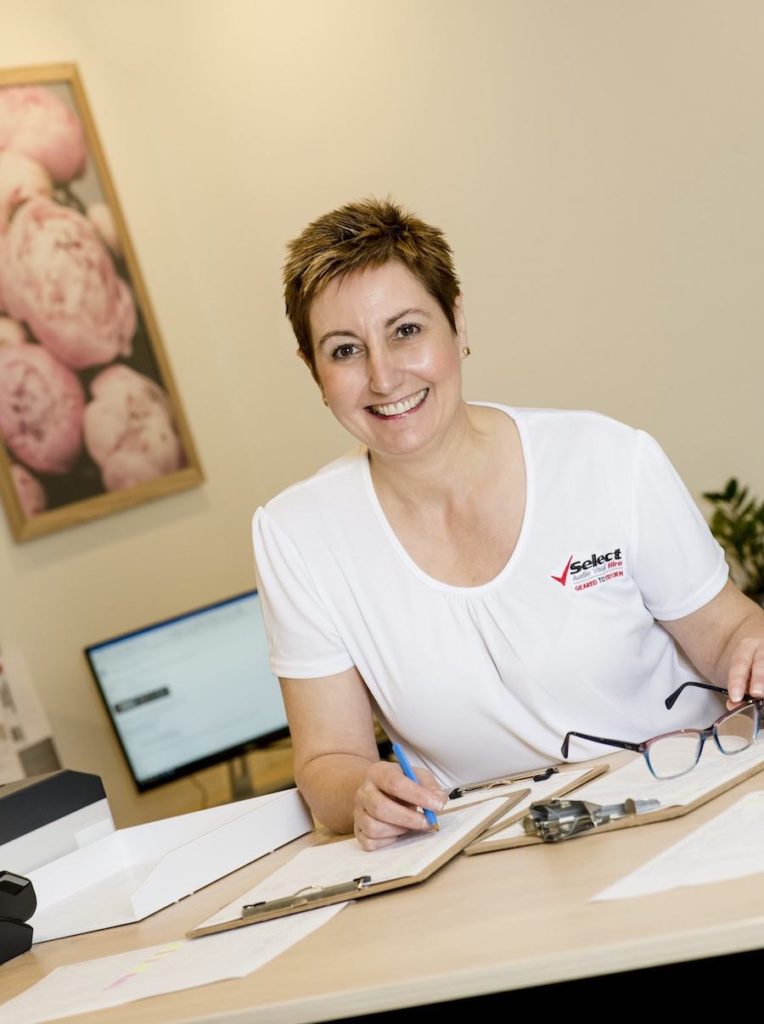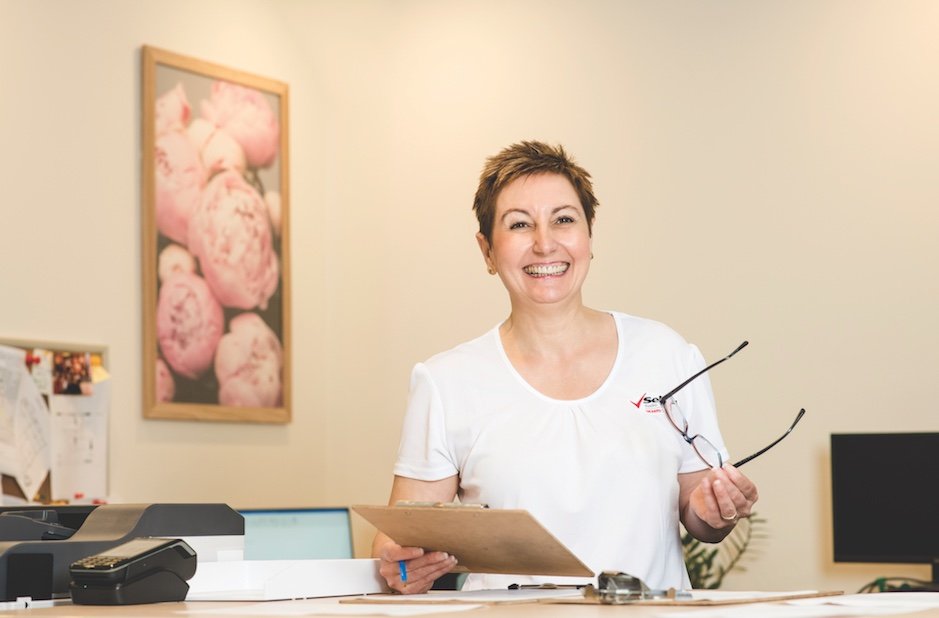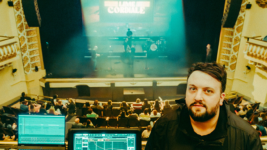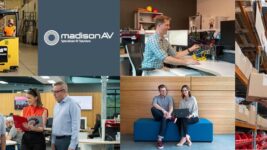News
14 Feb 2020
June Jones
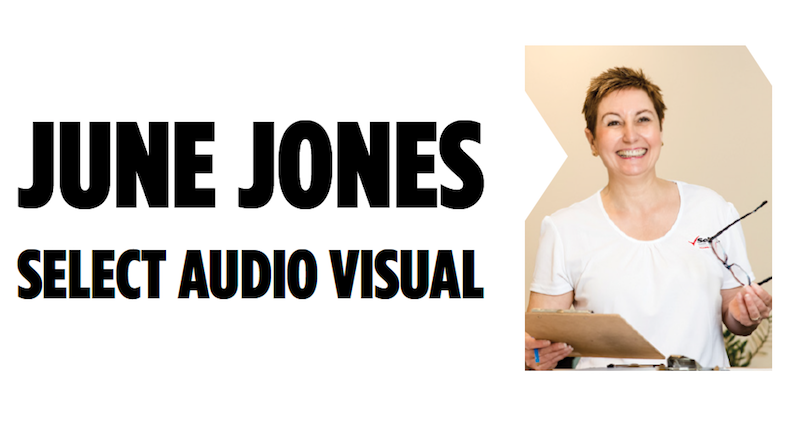
Subscribe to CX E-News
June Jones – Select Audio Visual
Meet June Jones, Operations Manager for Select Audio Visual in Queensland. June has been working in the industry for over 20 years and brings a rich background of event knowledge to her work. She is passionate about customer service, loves AV, and wouldn’t want to be doing anything else
What do you love about working in AV?
I love the different aspect to every day. No two days are exactly the same. I couldn’t see myself working anywhere where I walked in 9 to 5 and knew exactly what I was going to be doing and ticking boxes and just going through the motions.
The thing about this job, while it can frustrate you and drive you crazy, at the same time it’s very different every day and that’s what keeps it fresh and new and wanting you to do it.
What motivates you?
When I do something and somebody says that was amazing or “You nailed it!” I love it when a client says “You totally got what I was asking you to do, even with that short brief I gave you, you totally brought it to life.”
Working together to achieve amazing results gives me everything I need every day.
What interests you more – the gear in the box or what it does?
I’ve always approached my work from a customer service angle, not a technical AV perspective. 95% of our clients are not technical. They don’t know what they want. They just know the look or feel they want.
Rather than look at the gear and what it can do, I think ‘How can I make this adapt to what they want to do?” I’m less about brands of gear. I am about collaborating with the client to achieve their event objectives.
Do you have a particular gear crush?
I don’t get connected to the gear in the way some techs do. And I think sometimes that is a godsend and sometimes it’s a downfall. But it works for me because that’s how I approach my clients and every event. I don’t have a favourite. It’s just what is going to work for what they want to do.
How did you get your start in AV?
I came from a background in banqueting in London and I saw what they were doing with AV, which was in its infancy back then. I just looked at what they were doing and thought that looks far more interesting than anything in banquets. So I wanted to switch over.
I didn’t have the opportunity in London but when I moved to Australia the opportunity arose to work for Robin White. They could see back then that they needed someone with a customer service focus rather than technical.Because you can teach the AV but it’s harder to teach customer service.
When they gave me that opportunity I just ran with it. I did lots of work outside of hours and always went along with the crew.
So you did most of your learning on the job?
I absorbed everything like a sponge. As soon as someone was able to teach me something I wanted to learn. I wanted to know how they did it, how they put it together, why it went together this way.
What was your biggest challenge transitioning from banquets to AV?
Learning about the connectivity and how everything worked. You plug this in here and this should happen, but it doesn’t actually because you have to make sure of all these other factors. That was the biggest challenge then, but I think it’s still the biggest challenge now.
The technology is always evolving so you have to keep those skills up and keep up that knowledge base. What was rule of thumb 5 or 10 years ago, we don’t even look at anymore.
AV has traditionally been a male-dominated industry. How have you been able to thrive and build a successful career?
Because I bring a different skill set. I excel in organisation and attention to detail. And all those things I think women predominantly have because they run multiple roads in their lives. I know that sounds a bit sexist.
You also have to have the desire to learn the equipment and be able to hold your own technically. That was one of the challenges I had once I had started to get some runs on the board. I was challenged about my technicality – what I could bring to the table technically as well as all that other ‘fluffy stuff’. That made me want to learn.
Anyone coming into the industry has to want to learn. It’s not a 9 to 5 job, it never has been, not if you want to make a real career out of it and have it long standing. You have to keep up with the changes, keep up with the trends and bring all these things to your clients.
How do you keep up with trends?
Everyday stuff I see. I never let an opportunity pass me by. Everything from what designers are doing, Instagram, Facebook, other events. I’ll never steal what others are doing, but there are aspects from it you can make personal to your own event.
It’s about always listening and looking out around you. Budgets are tightening but clients still want more bang for their buck.
Any tricks or ways to best communicate around this?
Each event has a different fix or way that I would approach it. I’m a real fan of lighting and how we can use that to change the look and feel of a function space and make it better for very little budget.
I always start from the beginning and look at what the client wants to achieve, who is attending, what the space is like, what’s the layout.
If clients haven’t thought through this early stuff first, then it can be a very long process to get to the right answer. But my transparency and openness from the beginning has always stood me in good stead.
What is one of the highlights or most significant events of your career?
An international conference on the Gold Coast last year with 11 rooms and 5 days of conferencing. It was mind-blowing.
I pride myself on my attention to detail and ability to coordinate large scale events. But even this blew my mind. I remember saying “This is the most difficult thing I have ever done”.
The most challenging aspect was all of the moving parts. The sheer size wasn’t it, the moving parts and the many variables happening in the background.
What helped you cope or succeed?
It was the team. The saying “There is no “I” in team” is not a euphemism. It’s real. Because you need to have the people around you to share the load with. You can’t do it all. It’s all about working together.
I think the key to success was also the most challenging thing, to keep everyone at the top of their game, as well as staying at the top of my game.
It was a lesson in this being more than just equipment, more than just techs, more than just the client. It’s about pulling all the elements together and keeping everyone happy.
It’s quite a skill and that comes with years of experience. Which is why people don’t manage multi-day million dollar conferences at the beginning of their career!
Any advice to young women wanting to make a start in AV?
There is an argument to having some background in events. If you are serious about getting into AV, if you have some of those other event skills then you can transition over. Then you are talking about something with some background knowledge.
Quite often you can talk to AV people and they can only speak from their point of view. If you want to jump straight in, you can do that. But if you want a career in AV, you have to have the mindset that you’ll need to grasp other skills along the way. It’s not just how the gear works.
There was a mindset years ago that women couldn’t be in AV because they couldn’t load trucks or move heavy gear around. With WHS these days we’re promoting safe work practices for everyone not just women.
The way the rules and laws for WHS have changed over the years, it has done so much to facilitate women coming into to the industry. And facilitating diversity in general.
… rules and laws for WHS have changed over the years, it has done so much to facilitate women coming into to the industry. And facilitating diversity in general.
What would you be doing if you weren’t working in AV?
I think I would have stayed in banqueting or something in customer service. But if I have a choice I won’t leave AV! I’ll finish my career here.
I could never do a 9 to 5 job. I need something with lots of moving parts and to do something different every day. I’d be bored if I didn’t have something to challenge me every day.
Do you have a superpower?
Not sleeping much. Being able to function on five hours sleep. That has really helped me out over the years. Working in AV and needing lots of sleep – doesn’t really go together. Sleep is a waste of time!
Any parting words?
I hope we do see more women coming into the industry. And I really hope that they don’t think any of the old ideals are still around – because they’re not. But they have to have the drive to do it.
Like any industry, there are going to be gates they have to get through and hurdles they have to jump over. But if they have the drive to do it, they can. They just have to want it
CX Magazine – February 2020
LIGHTING | AUDIO | VIDEO | STAGING | INTEGRATION
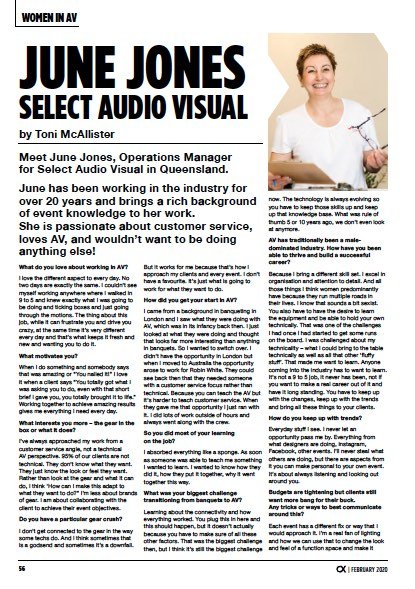
Entertainment technology news and issues for Australia and New Zealand
– in print and free online www.cxnetwork.com.au
© VCS Creative Publishing
Subscribe
Published monthly since 1991, our famous AV industry magazine is free for download or pay for print. Subscribers also receive CX News, our free weekly email with the latest industry news and jobs.

